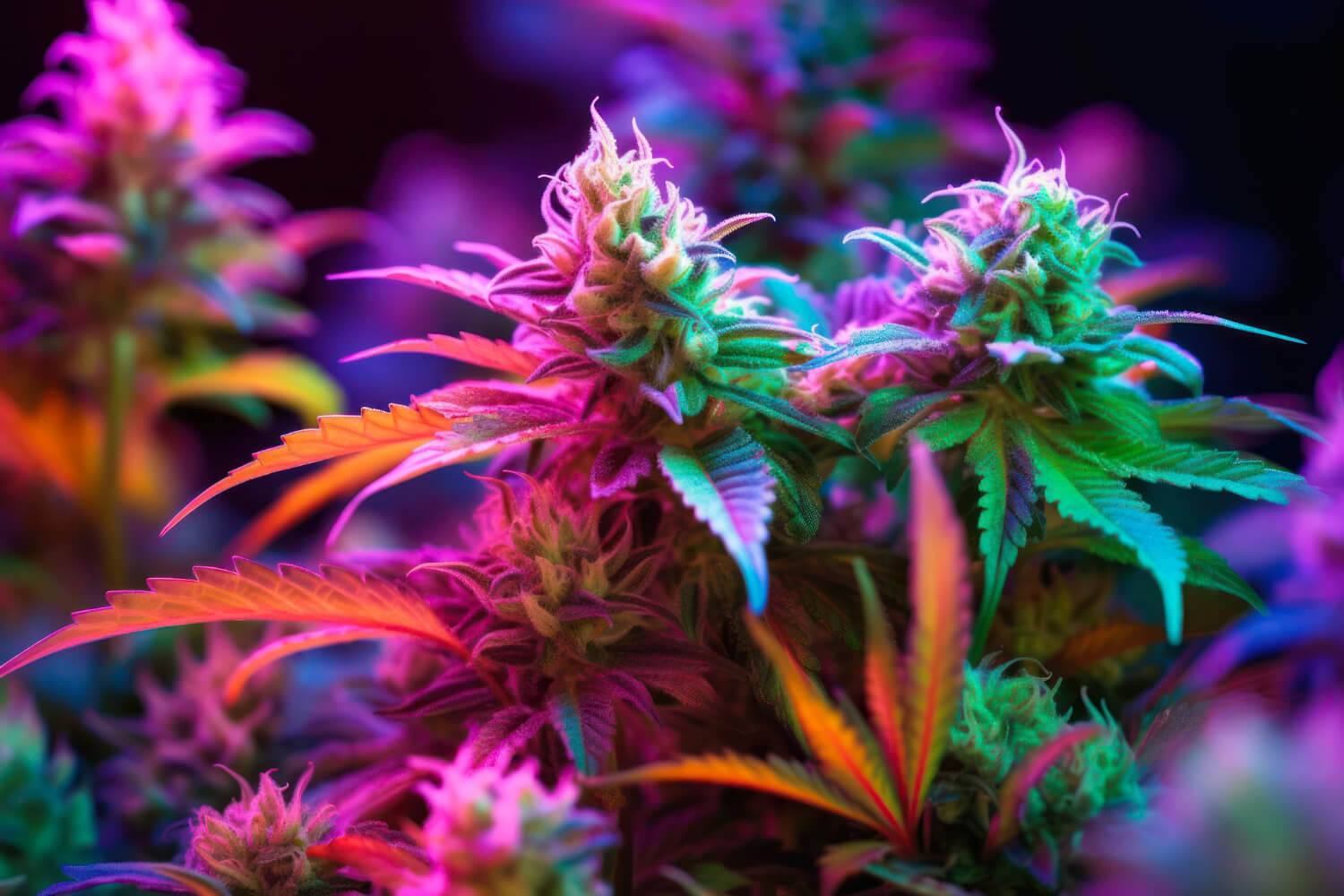What Is THC-O? In literal terms, it is a cannabinoid that has recently captured significant attention from researchers and consumers alike because of its unique properties. While THC and CBD have been a hot topic for some time, THC-O brings a novel perspective with its unique attributes and potential applications.
The Basics of THC-O Acetate
THC-O Acetate stands out as a potent variant of THC, drawing attention because of its alleged potency and distinct effects.
Chemical Structure
THC-O Acetate is essentially a chemical ester derivative of THC. This means it is the raw, organic form of THC that has undergone a specific chemical process to create this acetate form.
Potency
THC-O Acetate is frequently characterized as notably more potent than conventional THC. Such heightened potency can result in stronger effects, possibly achieved with smaller doses.
Production
Producing THC-O Acetate requires a specific chemical procedure that transforms THC into its acetate variant. This conversion is not easily or safely achievable at home, underscoring the significance of sourcing products from trusted and reputable sources.
Research and Safety
Like many emerging cannabinoids, comprehensive research on the safety, effectiveness, and long-term impacts of THC-O Acetate in humans remains limited. Given its potency and possible risks, exercising caution is recommended.
The Effects and Potency of THC-O
THC-O, often discussed within the framework of THC-O Acetate, is purportedly more potent than traditional THC.
Increased Potency
THC-O is frequently highlighted for its heightened potency compared to standard THC. As a result, individuals might encounter stronger psychoactive effects, even with smaller doses, relative to what they might expect from conventional THC.
Intensified Effects
Owing to its claimed heightened potency, individuals have described experiencing intensified psychoactive outcomes from THC-O, such as heightened euphoria, deep relaxation, shifts in time perception, among other effects.
Nevertheless, the amplified potency also brings about an elevated potential for adverse reactions. People have often complained of experiencing effects such as anxiety, paranoia, and other side effects after consuming THC-O.
Safety Concerns
The purported potency of THC-O raises valid safety considerations. It’s essential to handle substances such as THC-O with care and caution.
Acknowledging that its effects can vary and become unpredictable, particularly when not consumed responsibly.
The Production and Legal Status of THC-O
Production
Initial Step: Yeast is manipulated or genetically modified to produce CBGA (Cannabigerolic acid), acting as a fundamental cannabinoid precursor.
Enzymatic Conversion: Specialized enzymes present within the yeast play a pivotal role. They convert the synthesized CBGA into THCA (Tetrahydrocannabinolic acid), the primary precursor to THC-O.
CBD Production: In a similar fashion but distinct pathway, different enzymes within the yeast enable the transformation of CBGA into CBDA (Cannabidiolic acid), setting the stage for CBD synthesis.
Decarboxylation Process: Drawing parallels with nature’s mechanism seen in cannabis plants, where heat triggers the conversion of THCA to THC, the THCA produced by the modified yeast is subjected to decarboxylation. This transformation leads to the formation of THC-O.
Potency Enhancement: The decarboxylation phase is instrumental. It activates the potent psychoactive properties inherent to THC-O, elevating its potency levels beyond that of conventional THC.
Legal Status
The legal classification of THC-O and its related compounds differs from place to place. Depending upon the different jurisdictions, there are different rules and regulations for each district that the citizens there are bound to follow.
Potential Risks and Safety Concerns
When addressing THC-O or any cannabinoid, it’S crucial to evaluate potential risks and safety issues. Such considerations are vital because even minor misuse could result in significant side effects that may be undesirable over time. Here are some general points to consider:
Regulatory Scrutiny
Due to its potency and potential psychoactive effects, regulatory agencies in various jurisdictions might closely monitor THC-O and products containing it. This scrutiny can influence its legal status and availability.
Interactions with Medications
THC-O, like several other cannabinoids, can potentially interact with certain medications.
Prior to consuming products containing THC-O, individuals taking medications or those with existing health conditions should consult with a healthcare professional for guidance.
Responsible Consumption
As with any potent substance, responsible consumption is crucial. Starting with a lower dose, understanding its effects on your body, and avoiding activities like driving or operating machinery under its influence are essential safety measures.
THC-O in the Market: Availability and Products
THC-O has attracted attention from consumers and enthusiasts eager to explore alternative cannabinoids. Its claimed potency and distinct effects, separate from typical THC, have sparked interest within the cannabis community.
Edibles
One prevalent product type linked with THC-O is edibles, including items like gummies or chocolates. These products frequently emphasize the claimed potency and distinctive psychoactive effects of THC-O.

Vape Cartridges
Some companies have introduced vape cartridges containing THC-O, catering to consumers who prefer inhalation methods or seek a more potent experience. Disposable options are available too.
As with any product derived from cannabinoids or cannabis, it’s important for users and enthusiasts to conduct thorough research, remain updated on local regulations, and prioritize product quality and safety.
People have always jumped on the opportunity to make the most of their THC-O experience, irrespective of the fact whatever form of THC-O they are consuming.
Future of THC-O: Research and Potential Uses
Here’s a summary highlighting the potential direction of THC-O in terms of research and its prospective uses.
Research Initiatives
Exploring its pharmacological characteristics, potential interactions, and safety measures through both preclinical and clinical research can unveil crucial details about its advantages and drawbacks.
It will also help reflect upon the possible uses of THCO for treating certain diseases and illnesses.
Comparative Studies
Evaluating THC-O alongside other cannabinoids like conventional THC or CBD through comparative research can shed light on its distinct properties and potential applications.
Medical Research
Investigating THC-O’s possible medical benefits, be it in pain relief, addressing neurological conditions, or other health-related areas, might set the stage for its therapeutic introduction.
A synergy between scientists, medical practitioners, and drug manufacturers could spur focused research and clinical assessments to gauge its effectiveness and safety.
Treatment Innovations:
By pinpointing particular medical scenarios where THC-O might outperform current treatments or other cannabinoids, there’s potential for groundbreaking advancements in medical studies and patient treatment protocols.
Conclusion: Is THC-O Acetate Dangerous?
THC-O Acetate is thought to have greater potency than traditional THC, suggesting that users might encounter intensified psychoactive effects. This could result in adverse responses such as feelings of anxiety, paranoia, or disorientation if ingested excessively.
It’s important to understand that the effects of THC-O Acetate can differ among individuals due to factors like genetic makeup, metabolism, existing health conditions, and the simultaneous use of other substances or medications.
A dose considered manageable for one person might trigger negative reactions in another, underscoring the importance of prudent consumption, awareness, and responsible use.
While THC-O Acetate raises concerns due to its potency, limited scientific data, regulatory attention, and quality control issues, labeling it as “dangerous” necessitates thorough scientific research, regulatory scrutiny, and public education.





